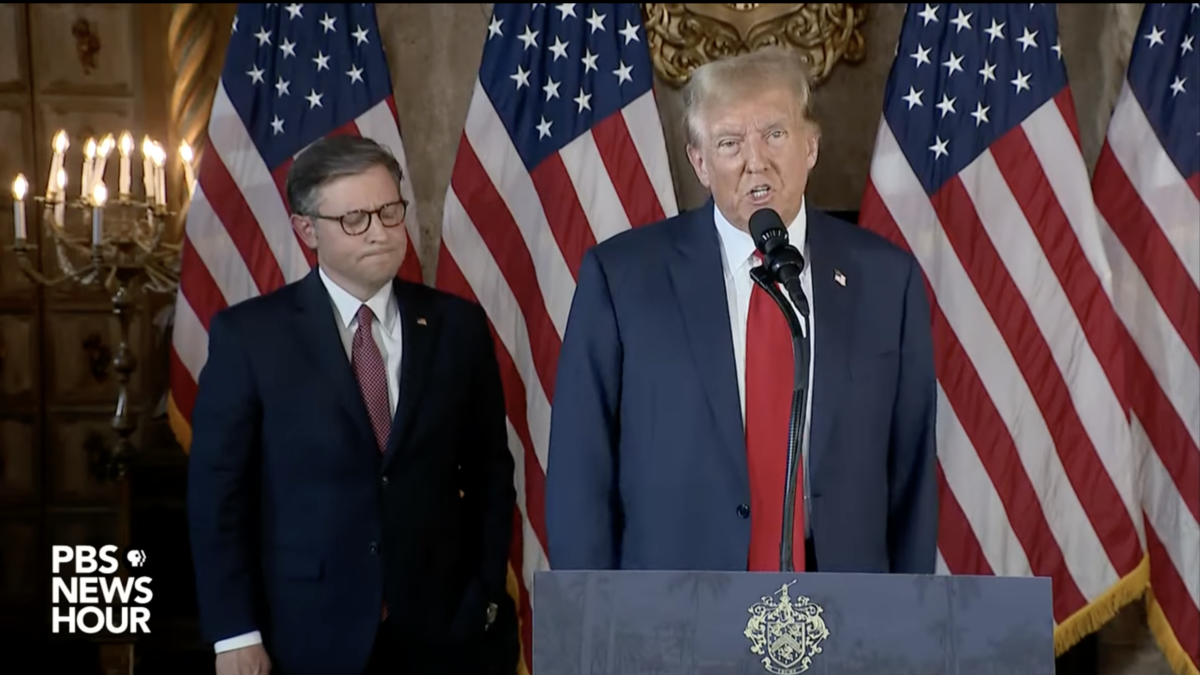
U.S. Secretary of Education Betsy DeVos is rearranging the landscape of Title IX regulation. The “Dear Colleague” letters the Office for Civil Rights issued in 2011 created a campus climate in which men were frequently railroaded on accusations of sexual assault or sexual harassment. DeVos’s proposed regulations, issued November 16, do not cure the whole problem, but they go a long way towards restoring due process.
The accused, at least, will now know of what they are accused and have the chance to defend themselves. DeVos’s department would eliminate the “single investigator” model that made the campus Title IX officer into an all-in-one fact-finder, counselor to the accuser, counselor to the accused, jury, and judge, and final court of appeal.
The Title IX Reign of Terror, however, is not quite over. From their inception as “guidance” on how colleges and universities should handle allegations of sexual misconduct, the OCR “Dear Colleague” letters were meant to hand institutional power to campus feminists. This was realized directly by vesting campus Title IX coordinators with control over how to handle allegations.
The “Dear Colleague” letters also dramatically expanded the reach of other college officials by allowing them to discover “discrimination” and “harassment” pretty much wherever they want. A new campus regime emerged in which it became dramatically easier to threaten and to intimidate anyone who crossed the invisible and often imaginary lines.
Springfield’s Misandry
The case of Professor Dennis Gouws at Springfield College in Massachusetts provides the best-documented instance of how this works. Gouws first came to national attention in spring 2016, when his department cancelled his popular undergraduate course, “Men in Literature,” which paralleled another offering in the English department, “Women in Literature.”
The course on men in literature had been offered for many years and wasn’t controversial, but all at once the dean of the college, Anne Herzog, decided Gouws’s interest in teaching about men was, as we now say, problematic. Gouws had ventured onto thin ice by agreeing to co-edit a book on maleness; missing a “sexual harassment prevention” training session in 2013; and organizing a Springfield College “men’s group.” Herzog seized on a complaint from one student in “Men in Literature” to demand that he revise the course.
Academic disputes among faculty can be like village feuds that begin with one thing and soon encompass almost everything. A quarrel over whose dog barked last night becomes a landmark case involving rights-of-way, boundary markers, and access to the well. Dozens of other people are drawn in.
The dispute between Gouws and Herzog has much of that character. I have tracked the details in a series of articles starting in May 2016. The most recent of these, published in June 2017, recapitulates the story. For the reader who wants to see how an incredibly petty college administration can persecute a tenured faculty member for no particular reason other than personal animus, the June 2017 version is the place to start. Or you could just pick up the current thread.
Dear Dennis
Herzog was never satisfied with stripping Gouws of his favorite course, denying his sabbatical leave, or refusing official recognition to his academic contributions to men’s studies. The underlying theme of Herzog’s interventions is that she wants Gouws’s total ideological submission, and, failing that, she wants to fire him.
Firing a tenured professor is never easy, and it is all the harder if he is a good teacher, a productive researcher, and someone who has never crossed any ethical boundaries. That leaves one avenue: find some sort of procedural waywardness.
Herzog placed Gouws on “Official Warning Status” on November 13, on the grounds that he was guilty of “substantial and manifest neglect of professional duties.” Sounds serious, does it not? Was Gouws out throwing darts in the Springfield pub when he should have been teaching class? Using students’ term papers for tinder at campfires for Springfield’s dwindling cohort of men?
No. Herzog’s complaints focus on his refusal to meet in person with the chair of his department to discuss some student complaints. The chair, Alice Knox-Eaton, declined to tell Gouws the nature of the complaints or who had complained, and she refused to put the matter in writing. Gouws has his back up about this, having already been subjected to closed-door berating on the basis of supposed student allegations that he was never allowed to see.
What might come to mind at this point is the Brett Kavanaugh-Christine Blasey Ford hearing of late September. What’s in play at tiny Springfield College is a version of the same gotcha game: first unsourced vague allegations, then recriminations if the target of the allegations refuses to submit to the attempted intimidation.
As far as anyone can tell, Gouws has done nothing wrong in his classes. If one or a few of his students object to something he has said in class, Gouws would be among the vast majority of faculty members in the age of snowflake sensibilities. But it is not even clear that any students raised complaints, let alone that the complaints are of a serious nature.
We can be sure of one thing: The complaints were not about sexual assault or sexual harassment in the usual sense. If there were any complaints of that sort, Gouws would have been instantly brought up on charges and no doubt summarily fired.
We are, rather, in the crepuscular world where empowered feminist administrators who simply detest a colleague who opposes their belief system can go in search of a pretext to get rid of him. Herzog has the rule book on her side. If she can get Gouws in a room with only her own witnesses, she can develop the story however she likes.
That’s what happened to Gouws a few years ago. He won’t play that game anymore, so now she goes after him for refusing to play the game.
Hostile Environments
During the Kavanaugh hearing I published a short article titled “Accusation Studies” in which I suggested that the current wave of trial-by-accusation in American society at large was created in “the crucible of campus victimology.” OCR’s “Dear Colleague” expansion of Title IX was the flame under that crucible.
In the very early days of Gouws’s travails at Springfield, he was accused by a college official of creating a “hostile environment” for having put up a poster next to one that said “Men can stop rape.” His poster said, “Women can stop false rape accusations.” Injudicious? Perhaps, but no more provocative or polemical than the first poster.
Herzog’s recent letter to Gouws putting him, for the second time, on “Official Warning Status” is the prelude to firing him for insubordination. Whether she will get her way remains to be seen, but no one in a position of authority at Springfield is standing in the way. Those who want to see Herzog’s letter for themselves can find it here. Gouws’s bracing reply is here.
As I’ve said on previous occasions, Springfield College merits attention only because it is a typical small college. It doesn’t represent anything unusual in how American institutions of higher education conduct their internal affairs. If it can happen at Springfield, it can happen anywhere—and it does. Gouws’s only claim to exceptional status is that he stuck in his heels on the way to the gallows, and that he has been willing to share with the general public how his college has treated him.
He and I have never met in person, but as I have gotten to know him, I have been especially struck by his lack of self-pity and his sturdy determination to stick to the course that he judges right. He has behaved, in other words, in accordance with the traditional code of male stoicism and devotion to duty. No wonder Herzog and her sisterhood want to eject him.









